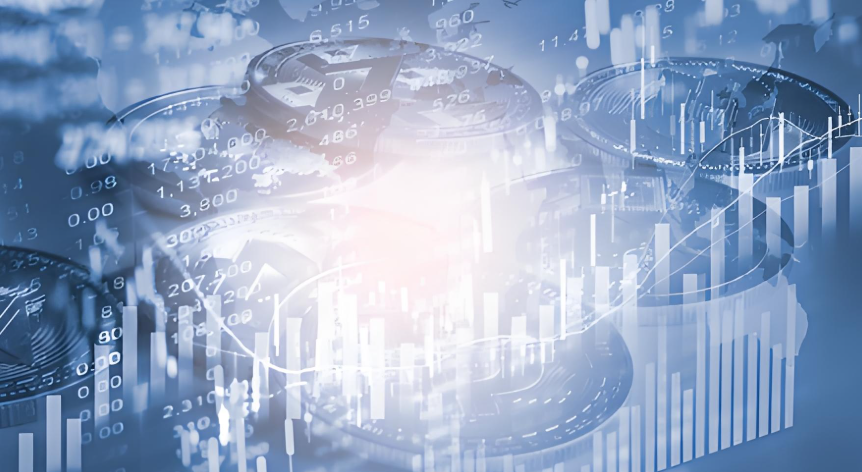How the Federal Reserve Can Break the Impasse
Advertisements
As the economic landscape continues to evolve, attention is firmly focused on the upcoming hearings held by the Federal Reserve, with Chairman Jerome Powell set to take center stage. These discussions, commencing on Tuesday, aim to navigate the complex issues surrounding the United States economy. Despite a generally optimistic outlook characterized by full employment and a cooling inflation rate, underlying uncertainties tied to government trade policy and other prevailing actions loom large over future economic projections.
The Federal Reserve operates with a mandate to steer the economy toward stability and growth while adeptly avoiding political entanglements. Powell and his fellow officials distinctly refrain from making direct comments on the actions of the executive branch or Congress, choosing instead to concentrate on economic data and its implications for monetary policy. This careful stance illustrates the Fed's dedication to maintaining its independence amidst the potentially destabilizing political climate.
Powell has expressed a cautious yet balanced view of the economic situation, recognizing the resilience shown by various economic indicators. In a recent press conference after the Federal Reserve's January meeting, he detailed how the labor market remains robust, suggesting a growth trajectory between two to two and a half percent: “We have a good labor market. Economic growth is holding steady between two to two and a half percent, and inflation is heading down.” While the overall economic metrics appear to reflect stability, Powell also acknowledged that the unpredictable nature of current government policies concerning trade, immigration, and fiscal measures introduces a layer of uncertainty that could impede progress.

The Federal Reserve's immediate priority, therefore, may hinge on the urgency to slow down policy adjustments. A misstep in rapidly altering rates could trigger unintended repercussions throughout the economy, generating market volatility that could derail ongoing efforts to transition toward a more sustainable economic future. The hope is for a gradual and steady approach to policy changes, allowing the economy to navigate these uncertainties without encountering major disruptions.
With the hearings looming, Powell is expected to articulate the Fed's stance on the prevailing economic conditions. During his sessions with the Senate Banking Committee on Tuesday and the House Financial Services Committee on Wednesday, Powell will likely face a barrage of questions from both parties, all eager to glean insights into the Fed's next moves as they relate to prevailing economic trends.
Recent consumer sentiment surveys tell a more complex story. Although inflation appears to be on a downward trajectory—with several indicators suggesting a gradual movement towards the Federal Reserve's target rate of 2%—consumer confidence has recently taken a hit. The Consumer Confidence Index experienced a notable drop, plummeting to its lowest level in seven months. Respondents now expect inflation to surge at an annual growth rate of 4.3% over the next year, which is a full percentage point higher than previous expectations. If consumers continue to harbor skepticism surrounding their economic outlook, spending may contract, potentially posing challenges for overall economic growth. This spiraling consumer perception complicates matters for the Federal Reserve, placing them in precarious territory.
Further compounding these concerns are recent rumblings surrounding potential tariffs on trade partners like Mexico and Canada, as well as pivotal materials such as steel and aluminum. The prospect of implementing hefty import taxes has ignited fierce debate about the potential consequences, particularly in terms of widespread inflation. Given the significant volume of trade between the U.S. and these partners, as well as the critical nature of steel and aluminum within various industries, imposing such tariffs could lead to escalated supply chain costs. Ultimately, these expenses would likely trickle down to consumers, pressuring prices across the board and sparking inflationary repercussions.
While the government has yet to outline specific plans regarding tax, spending, and regulatory reform, forthcoming discussions in these areas will have considerable implications for economic performance. The economic climate demands a strategic approach as proposals are deliberated, evaluated, and potentially implemented.
The most recent non-farm payroll report paints a rather positive picture for the U.S. job market, showing a reduction in the unemployment rate from 4.1% to a more favorable 4%. This shift, coupled with robust wage growth—averaging a year-on-year increase of 4.1% and a month-on-month increase of 0.5%—indicates that the U.S. economy can withstand current challenges. In light of this improved employment outlook, expectations for an imminent rate cut this year have diminished. Although the market still anticipates a 25 basis point reduction by June, the likelihood of further cuts has begun to wane as economic indicators are closely monitored.
In January, the Federal Reserve maintained its policy rate within the 4.25% to 4.5% range, following a total reduction of one percentage point during the last three meetings of 2024. Economists from Deutsche Bank noted that Powell is likely to reaffirm the messages communicated during the January FOMC meeting. In a foundation of robust economic performance, a solid labor market, and uncertain inflation progress, they predict, “The Fed is in no rush.” The recent discussion surrounding tariffs only heightens the rationale for maintaining a patient approach as inflation risks loom.
In conclusion, the hearings coming up this week serve as a critical juncture for understanding the Federal Reserve's policy trajectory amid a sea of economic uncertainties. The tension between promoting growth and managing inflation continues to shape Powell and the Fed's decision-making landscape. As they navigate the complexities of domestic and global economic indicators, their actions will ultimately hold significant consequences for both consumers and the broader economy.
Post Comment